Treaty of Versailles (film), Britannica
Aftermath; Fueling Hatred
June 28, 1919 - Present
"A Germany humiliated, torn to pieces, damaged and damned to a miserable economic existence would be just as great a danger to a world peace as a Germany, protected in its obvious rights and conditions of being, would be a protection for it."
~ German Peace Society ("The Birmingham Age-Herald", December 2, 1918, Chronicling America)
Impacts on Germany
The harsh terms dictated in the Treaty of Versailles infuriated German citizens, stirring outrage and creating political unrest. They believed the treaty was a "diktat" (dictated peace) and felt betrayed by their leaders who signed the treaty, calling them the "November Criminals."
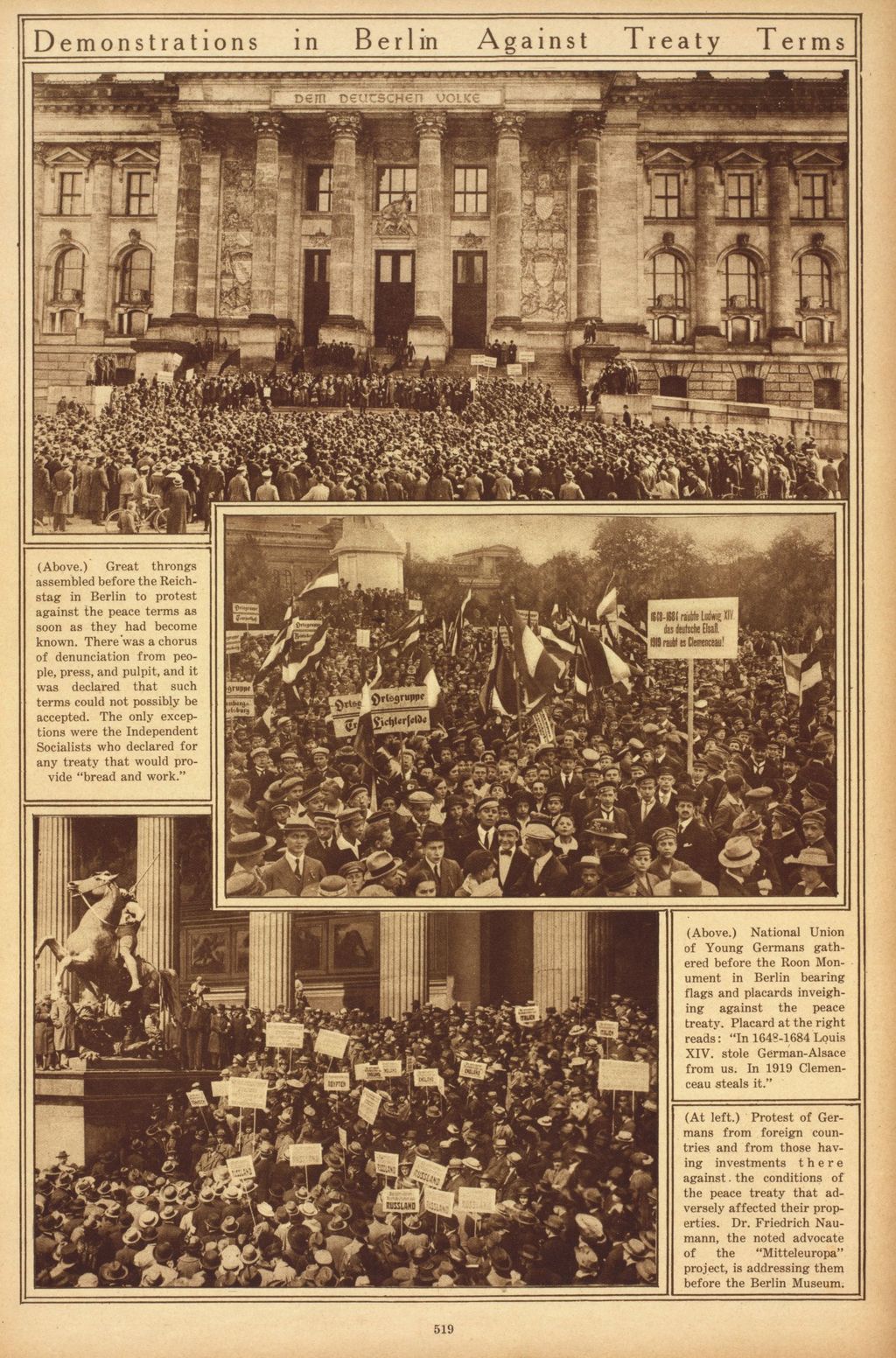
Riots in Berlin, 1919, Library of Congress
During the 1920s, the German government printed an excessive amount of money to pay for the reparations, causing the currency to spiral down in value. The hyperinflation reduced the value of the German mark to the point where a citizen's life savings might only amount to a subway ticket. The economic reparations crippled the German economy for years. They were finally paid off in 2010, ~90 years after the treaty was signed.

Inflation, Deflation and Unemployment in the Weimar Republic, 2021, Bloomberg
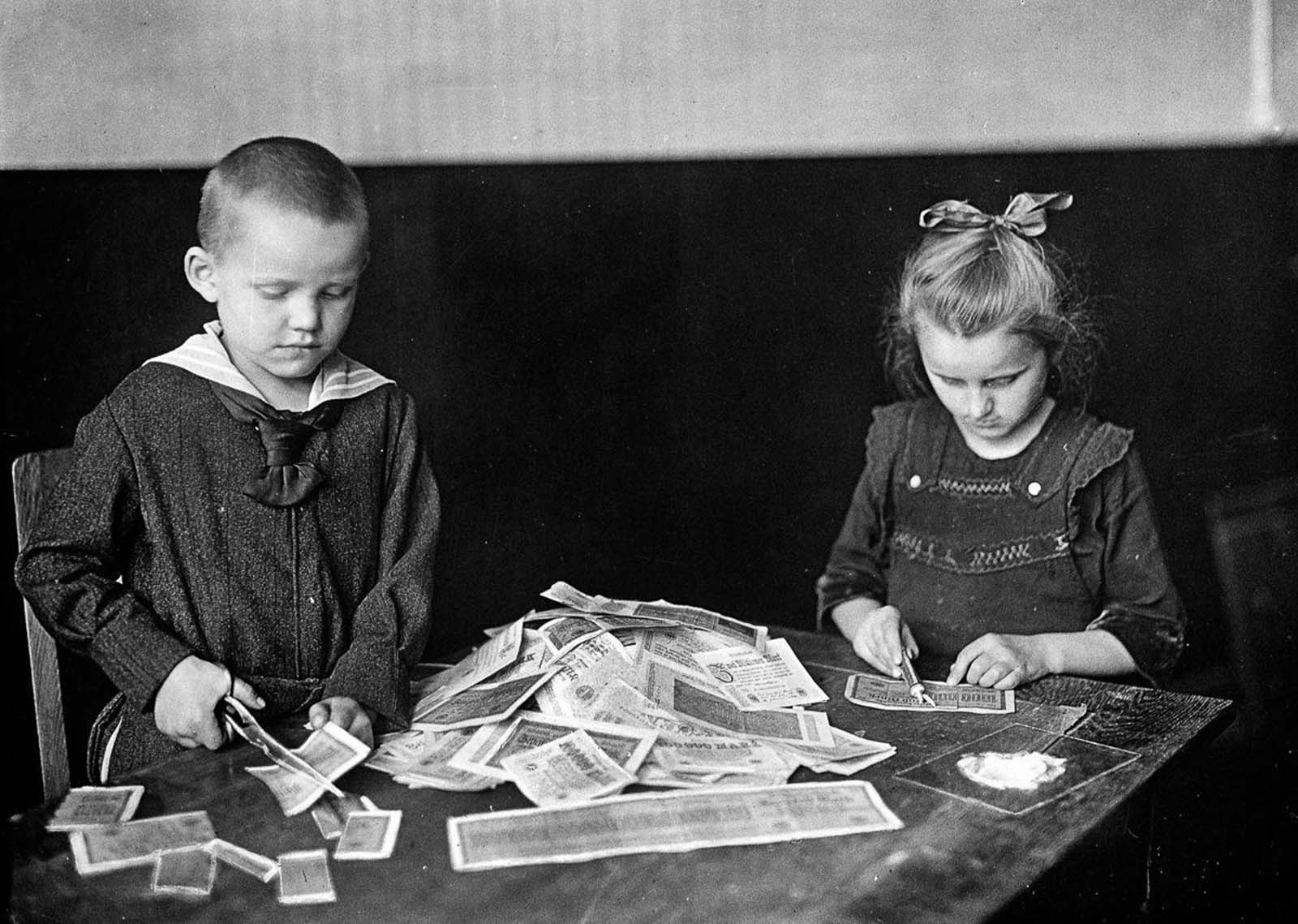
German children playing with hyperinflated money, 1919, New York Times
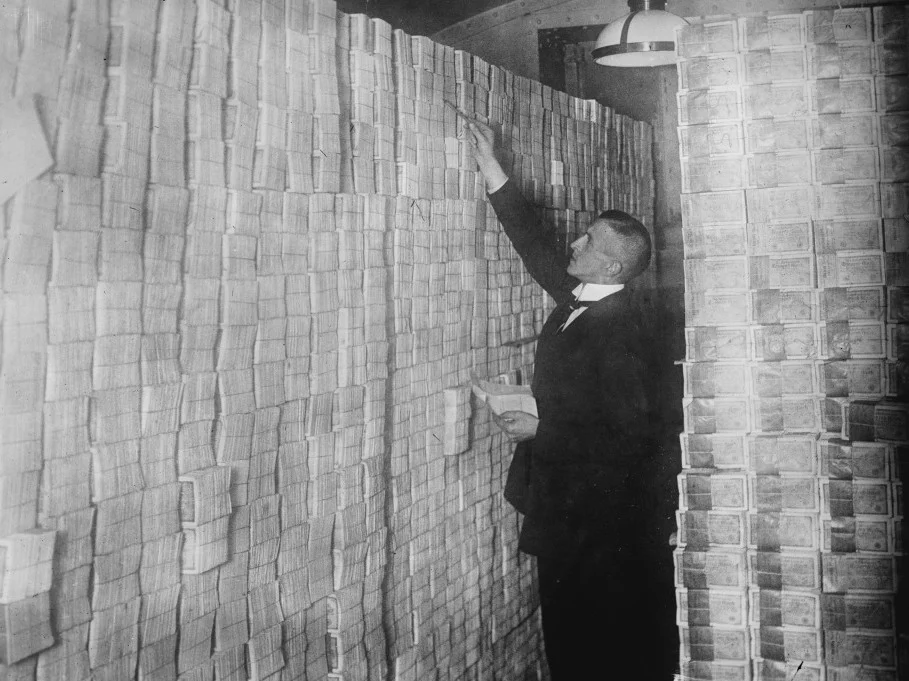
Pape money is stacked in a Berlin bank, 1922, National Public Radio
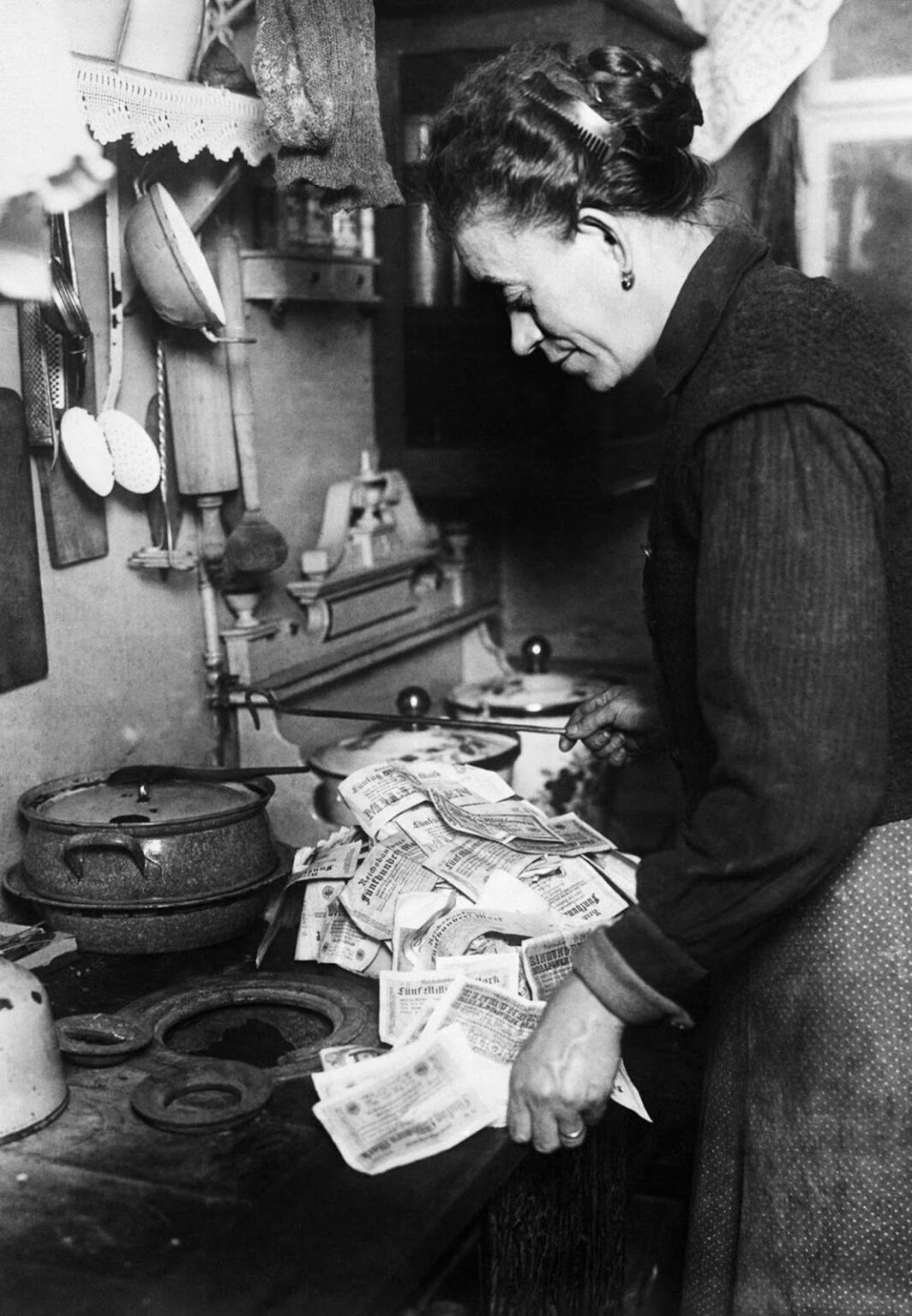
German marks, being cheaper than fuel, was used to light a stove (Inflation in the Weimar Republic, 1923, Britannica)
Nazi Party and World War II
Adolf Hilter, the leader of the Nazi Party, promised to get revenge for the humiliation and further exploited the situation to win support for the Nazi Party. He developed a program that would be used as the basis for the Nazis. It called for Germany’s rejection of the treaty and territory expansion. Hitler quickly rose to power and was appointed German chancellor on January 30, 1933.
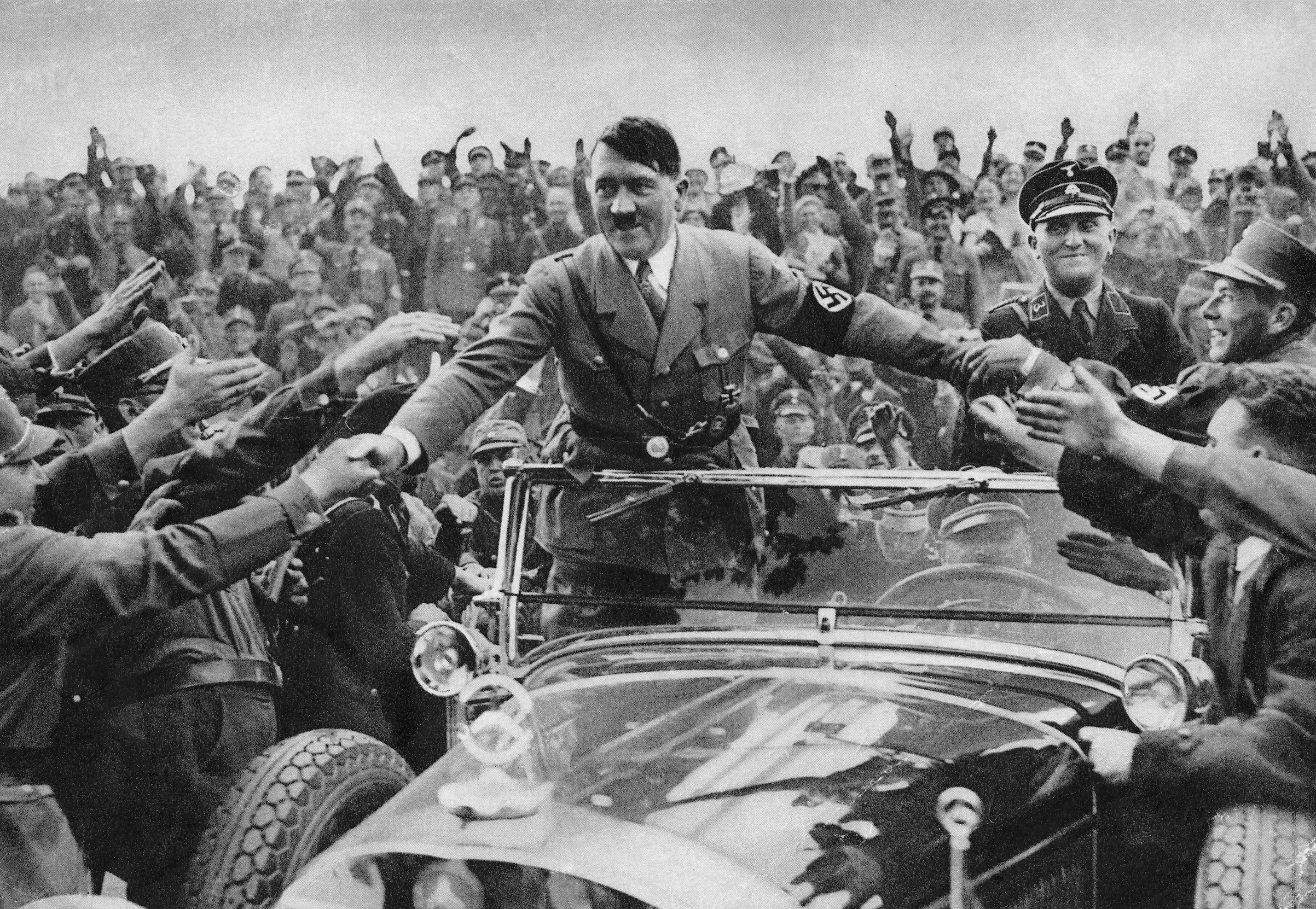
Adolf Hitler is welcomed by supporters at Nuremberg, 1933, Time
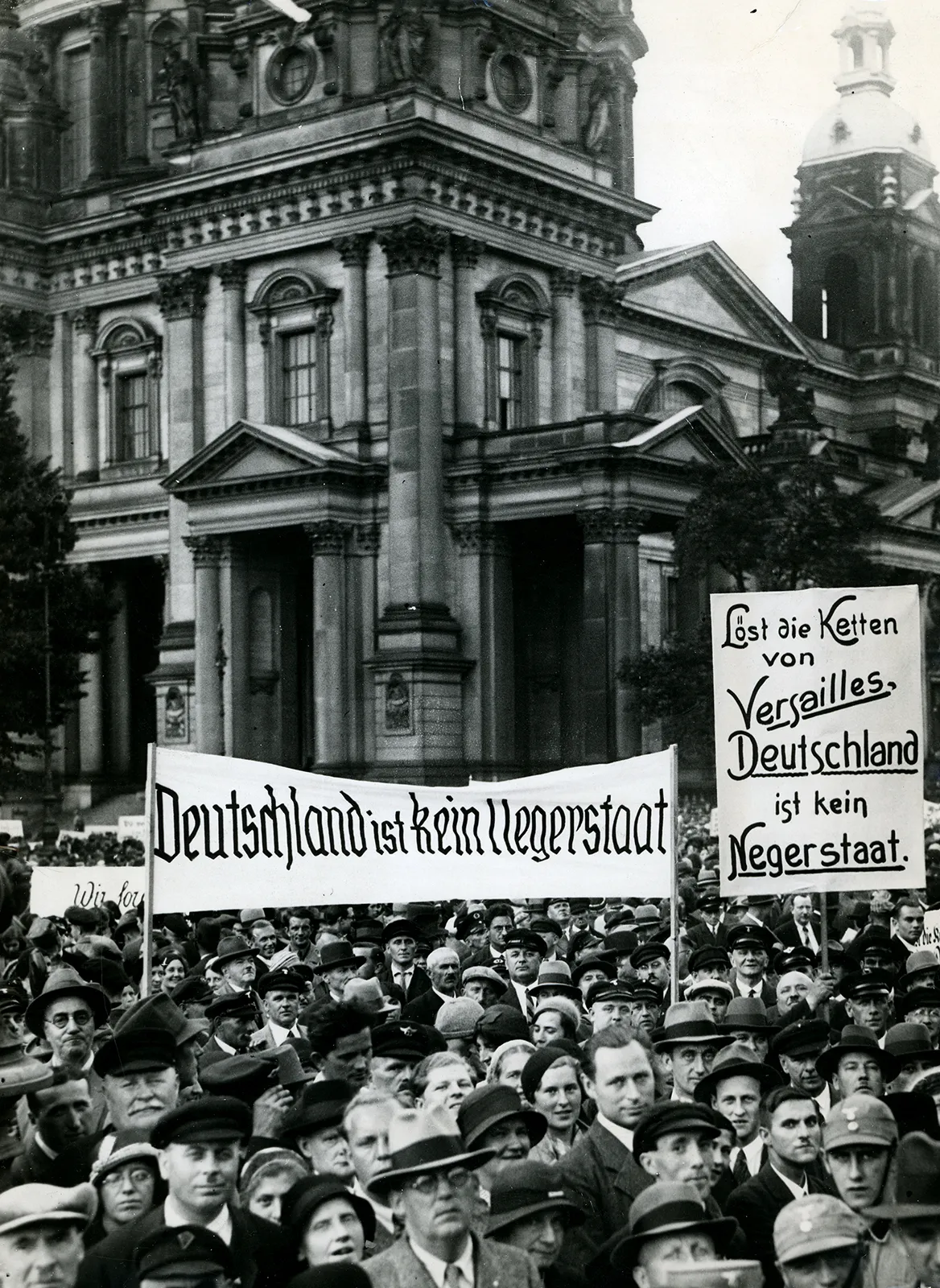
Banner at the right reads, "Lose the chains of Versailles, Germany is not a Negro state." (Nazi-led rally against the Treaty of Versailles, June 28, 1933, Britannica)
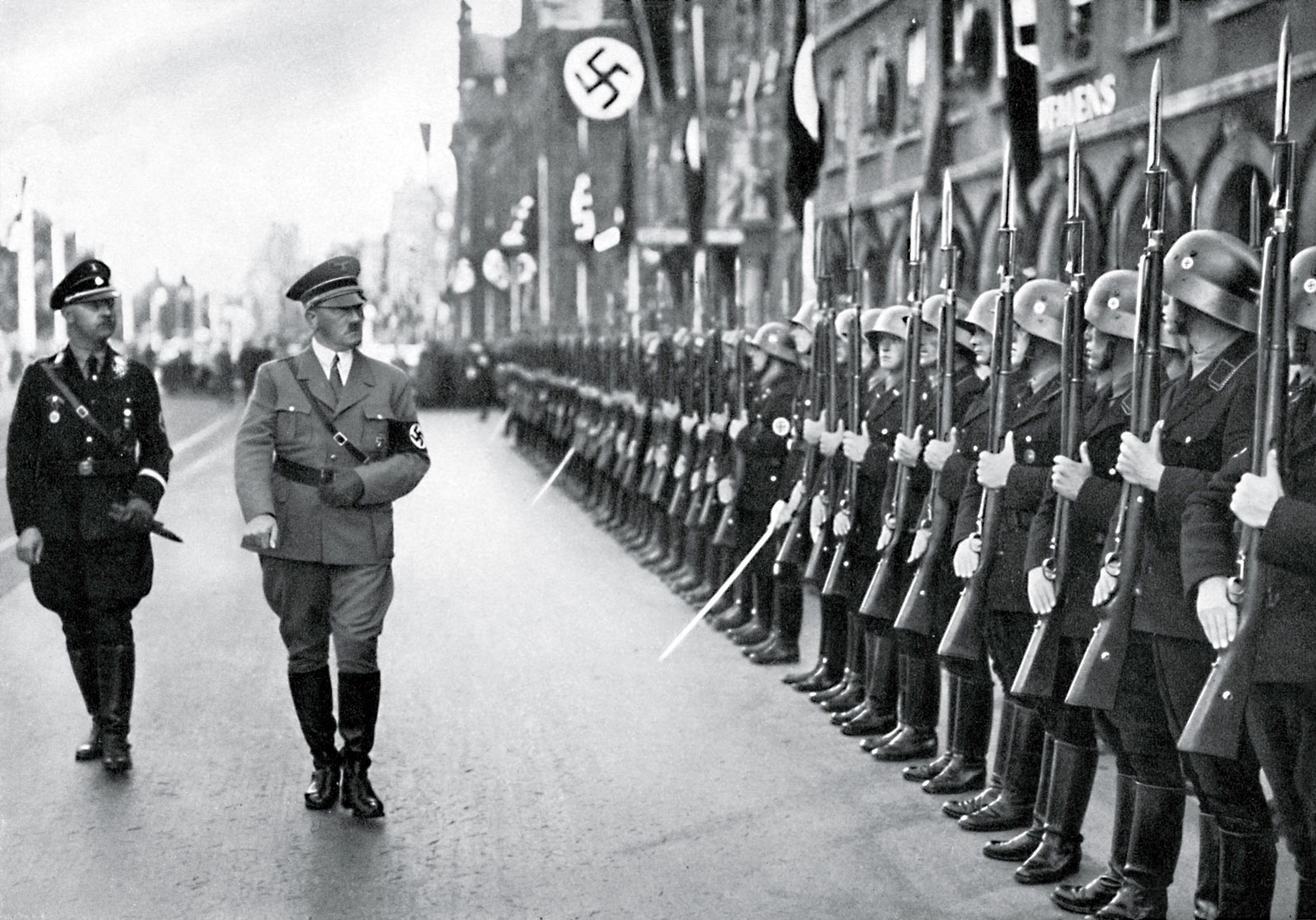
Heinrich Himmler (German Nazi Politician) and Adolf Hitler, Britannica
In 1935, Hitler violated the treaty by canceling the military clauses. In 1936, he violated the treaty further by remilitarizing in Rhineland, a demilitarized zone. On September 1, 1939, German forces under Hitler invaded Poland, a key event that is widely considered as a major turning point of sparking World War II, the deadliest war in history killing sixty-million people across 45 countries.
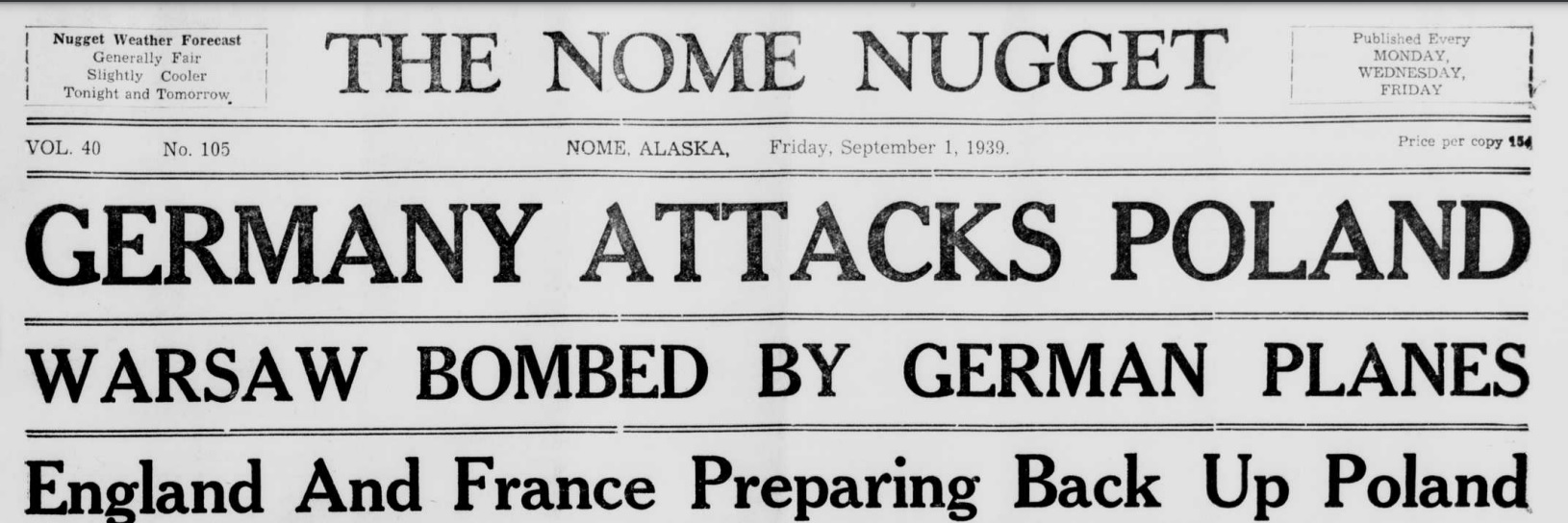
"The Nome Nugget", Sept 1, 1939, Chronicling America
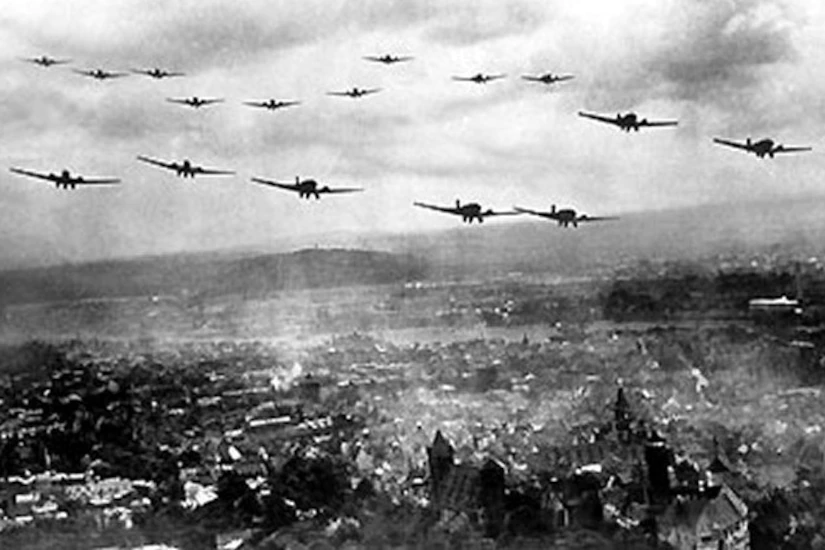
German planes fly over Poland, Sept 1, 1939, U.S. Department of Defense
Global Consequences